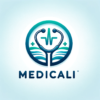In recent years, we have witnessed remarkable advancements in medicine and healthcare. As our understanding of the human body and the causes of diseases continues to expand, so does the range of therapeutic options available to us. From regenerative medicine to gene therapy, the future of healing looks incredibly promising. In this blog post, we will delve into the fascinating world of cutting-edge therapies that are revolutionizing medicine.
1. Regenerative Medicine:
Regenerative medicine is a field that aims to restore the structure and function of damaged tissues and organs. It uses techniques such as stem cell therapy, tissue engineering, and gene editing to stimulate the body’s natural regenerative processes. Imagine a world where damaged hearts can be repaired without the need for transplants, or spinal cord injuries can be reversed. This groundbreaking approach offers hope to countless patients suffering from previously incurable conditions.
2. Gene Therapy:
Gene therapy holds immense potential to treat and even cure genetic disorders. It involves introducing genetic material into a patient’s cells to correct or replace faulty genes. This therapy has already shown promising results in tackling diseases like hemophilia, muscular dystrophy, and certain types of cancer. The ability to edit our genes opens up a world of possibilities for personalized medicine, where treatments can be tailored to an individual’s unique genetic makeup.
3. Immunotherapy:
Immunotherapy harnesses the power of the body’s own immune system to fight diseases. This revolutionary approach utilizes various techniques, including monoclonal antibodies, checkpoint inhibitors, and CAR-T cell therapy, to target and destroy cancer cells specifically. Unlike conventional treatments like chemotherapy, which often have harsh side effects, immunotherapy offers a more targeted and potentially less toxic alternative. It has already transformed the landscape of cancer treatment and continues to show promise in treating other diseases, such as autoimmune disorders and infectious diseases.
4. Nanomedicine:
Nanomedicine involves the use of nanoparticles and nanotechnology for targeted drug delivery and diagnostics. These tiny particles can navigate through the human body, selectively targeting diseased cells or tissues while minimizing the impact on healthy ones. By precisely delivering drugs to specific locations, nanomedicine aims to enhance treatment efficacy and reduce side effects. This field is not only revolutionizing drug delivery, but also holds promise for early disease detection and monitoring.
5. Artificial Intelligence (AI) in Medicine:
Artificial intelligence has the potential to transform every aspect of healthcare, from diagnostics to treatment decisions. Machine learning algorithms are being developed to analyze vast amounts of medical data and assist healthcare professionals in making accurate diagnoses and treatment plans. AI can help detect patterns and predict outcomes, leading to more personalized and targeted treatments. Additionally, wearable devices and health monitoring apps powered by AI are empowering individuals to take charge of their own health.
The future of healing is a rapidly evolving landscape, driven by cutting-edge therapies that offer hope for individuals worldwide. While these advancements are exciting, it is crucial to proceed with caution and ensure ethical considerations are at the forefront. As research continues and regulations are put in place, we can look forward to a world where diseases that were once considered incurable become a thing of the past, and where personalized medicine becomes the norm.
In conclusion, the future of healing is unfolding before our eyes. Regenerative medicine, gene therapy, immunotherapy, nanomedicine, and AI are just a glimpse of what lies ahead. These groundbreaking therapies promise to revolutionize medicine and transform the way we approach healthcare, offering hope for a healthier and brighter future.

